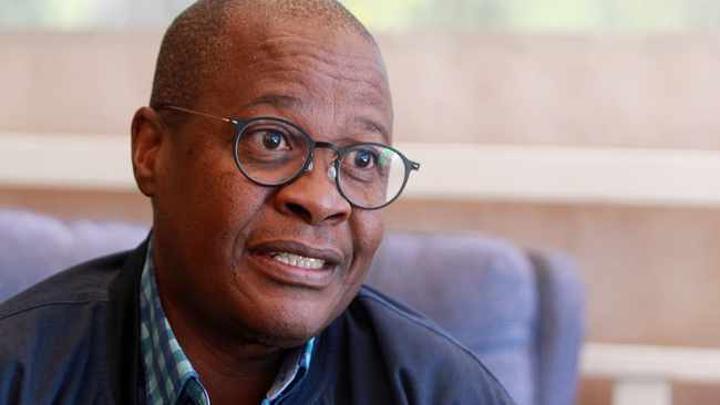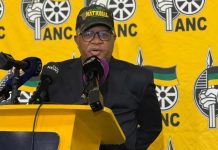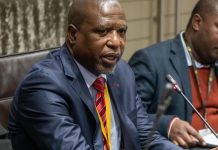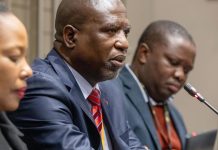Africa-Press – South-Africa. Johannesburg – Former Eskom chief executive Brian Molefe has defended the power utility’s decision to pursue a R2.17 billion claim against Optimum Coal when President Cyril Ramaphosa was its chairperson and shareholder.
Molefe told the Commission of Inquiry into State Capture on Tuesday that the R2.17bn in penalties issued to Optimum Coal for supplying substandard coal had been outstanding from since 2013 when it was still under mining multinational Glencore.
The former head of Transnet and the Public Investment Corporation said when he arrived at Eskom he ordered that summons before the R2.17bn matter prescribed.
”The R2.17bn accumulated while Ramaphosa was still Optimum Coal chairperson, it was due and had accumulated,” Molefe explained.
He asked: “How can we go to Soweto and collect when we can’t collect from Optimum Coal under Ramaphosa?”
Soweto residents reportedly owe Eskom around R20bn in debt.
Molefe said when he left Eskom in December 2016 the R2.17bn was still outstanding.
”I was persecuted for trying to collect the R2.17bn,” he maintained.
Optimum Coal’s penalties were reduced to just over R255 million after the company was taken over by Gupta-owned Tegeta Exploration and Resources but Molefe told the commission that he was not there when the reduced settlement was negotiated.
Eskom and Optimum Coal reached a settlement for the company to pay the R255m in penalties between April 2017 and December 2018.
The commission has heard that soon after his secondment from Transnet to Eskom terminated the cooperation agreement and negotiations with the then Glencore-owned Optimum Coal in June 2015.
”A lot has been said about the fact that we refused to negotiate, we negotiated. My understanding was that I must deal with the matter as I saw fit and report to the board,” said Molefe.
According to Molefe, the mandate from the board was to deal with the fact that Optimum Coal wanted an increase from R154 to R442 per tonne of coal.
”I was not being asked to rubberstamp. I had to look at the matter and deal with it decisively, and that is what I did,” he said.
Molefe told the commission that the agreement had never been to the board before it was signed and that its financial implications were so big that it was above the delegation of the Eskom official who signed it.
He said he found the agreement to be preposterous and unacceptable.
”I have a feeling if I had signed that agreement we would be sitting in this commission or a similar platform asking why I agreed to a deal that collapsed Eskom,” said Molefe.
Commission chairperson Deputy Chief Justice Raymond Zondo said Clinton Ephron, former chief executive of Glencore’s coal business in South Africa, director of both Optimum Coal Holdings and Optimum Coal Mine, has filed an affidavit responding to Molefe’s statement and even might come back to the commission.
The commission has also been in touch with the lawyers of Glencore chief executive Ivan Glasenberg, who will retire later this year, to provide affidavits, but Justice Zondo indicated that because he lives abroad there may be challenges in terms of him giving oral evidence.
Molefe accused Glasenberg of visiting him and threatening that if Eskom did not sign agreement to increase Optimum Coal’s price of coal from R154 to R442 there would be more load shedding.
He said Glasenberg put the proverbial gun to his head but he told him to shoot.
Molefe is back at the commission on Wednesday to continue his testimony while former Eskom and Transnet chief financial officer Anoj Singh is also expected to give evidence.
[email protected]
Political Bureau






